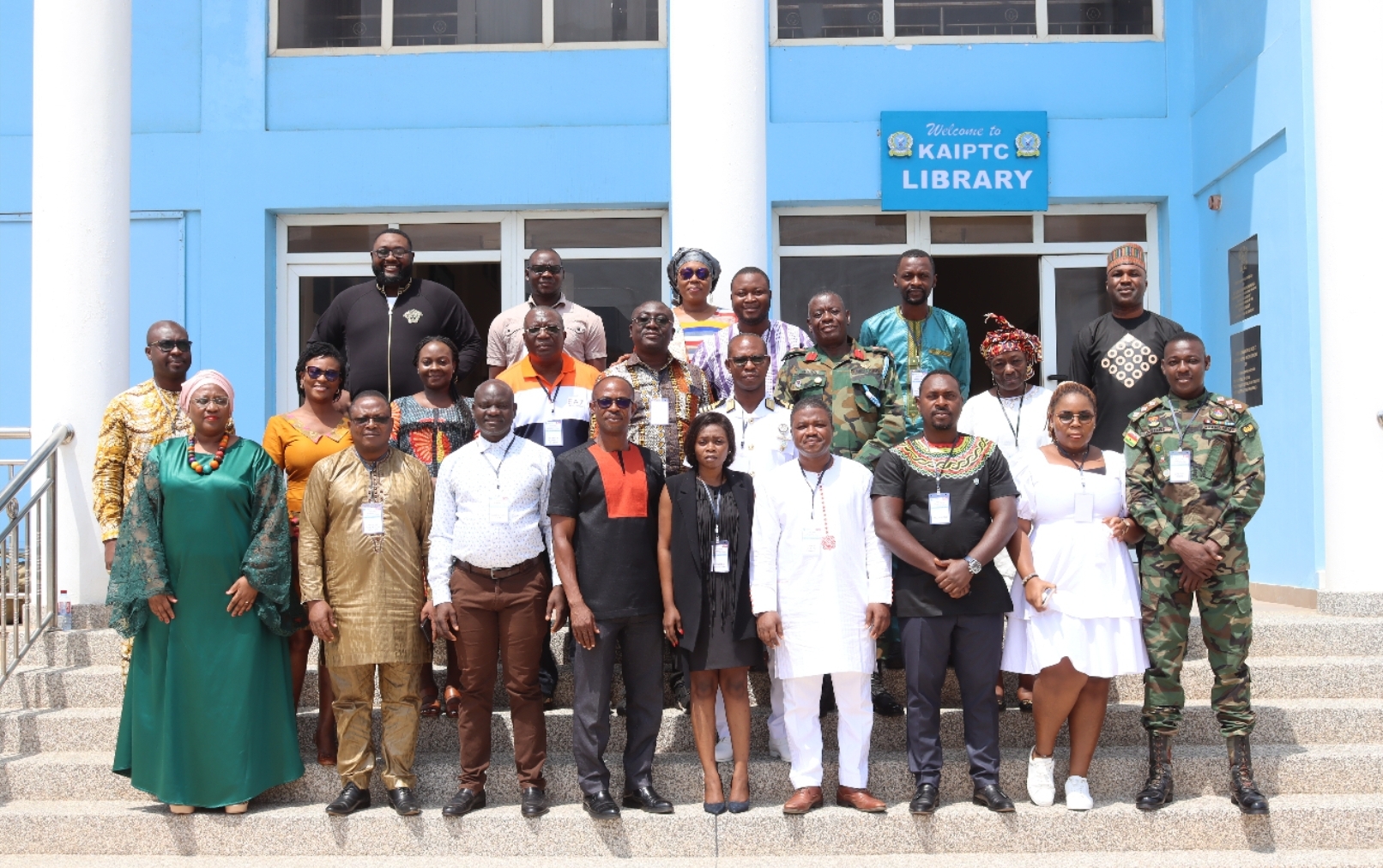The Kofi Annan International Peacekeeping Training Centre (KAIPTC) in conjunction with the Economic Community of West African States (ECOWAS), has rounded off its six days Election Observation Training Course 2023 (EOT ’23) with a call on participants, as Domestic and International Observers, to endeavour to operate within their mandate to promote and protect peace.

Addressing participants at the closing ceremony at the Centre of Excellency on Saturday 11 February 2023, the Deputy Commandant, KAIPTC – Air Commodore (A/Cdre) George Arko-Dadzie stressed the importance of elections as a mechanism which can protect the will and mandate of the people in selecting national or local leaders, and choosing policy alternatives presented by competing ideas.
As a Centre of Excellence that strives to contribute to strengthening and building capacity for peace operations within the ECOWAS region in particular, and the continent in general, KAIPTC brought together some of the highest calibre of election experts, practitioners, advocates and partners from the Ghana Armed Forces (GAF), African Union Commission, Civil Society and academia, to be facilitators of the EOT ‘23.
A/Cdre G Arko-Dadzie said the programme was funded directly from the Centre’s core funds, to which the Government of Norway is the principal contributor, and that KAIPTC keeps a database of all its graduates and will avail the list of new professionally trained Election Observers with ECOWAS and the African Union (AU), for utilisation in future assignments.
Course Facilitators at the training included Pauline Adobea Dadzawa – Public Service Commission – Commissioner; Ken Abotsi – Senior Policy Adviser, AU Commission, Ethiopia; Dr Evans Aggrey-Darkoh – Chief Director, Parliamentary Affairs Ministry, Ghana; Lt Col Dickson Kpodo – Accra; Brigadier General Benjamin Amoah-Boakye – Director General, Legal Department, GAF; Colonel Lawrence Deku – Senior Staff Officer, GAF; and Eric Dagadu – Fellow, Geneva Centre for Security Policy (GCSP), Switzerland.

The lessons taught covered the following: Understanding the Role of Elections in Democracy, Conceptual Framework for Elections and Election Observation, Understanding the Electoral Process
Legal Framework of Elections, Code of Conduct for International Election Observation, Report Writing; Gender, Women, Youth, Minority Groups and Elections: Conceptual Issues
Access and Participation.
Others include Election Observation as a Conflict Prevention Mechanism, Personal Security in the Field, Civil Society Groups and Election Observation, Social and Intercultural Competence: Working with Local Actors & Teams, Election Administration: The Role and Challenges of Election Management Bodies in Facilitating Credible and Peaceful Elections, and Simulation Exercises.
At a panel discussion by experts on “The Role of International Observation as facilitators or enhancers of peace, security and good governance”, Mr Abotsi of the AU said some election related conflicts emanate from the structure of society – such as poor governance.
He said governments are elected to allocate goods and services to its citizens, and should the government fail in delivering the social services that should accrue to the citizens, then some citizens may resort to waiting anxiously for the next election, to participate in and deem the process as a do-or-die affair.

The AU Senior Adviser said election observation is then used as election conflict prevention mechanism, and could be used not only during and post elections, but also at the pre-election phase, such as at the level of budgeting, procurement, financing, logistics, during the election calendar, to ensure transparency and minimize conflicts around those matters.
Dr E Aggrey-Darkoh said law-and-order is the single most important function of any state – it ensures peace, and that it is the least the state can do to guarantee minimum peace and security for its citizens, based upon which the people go about their normal business.
“When the laws are with humans, they are the best of animals, when the laws are separated from humans, they are the worst of animals”, the former Senior Lecturer, University of Ghana, Legon said.
He opined that the basic reason why people go into elections is to win power; which can be defined as the authority to decide and ensure who gets what, when and how. He furthered that in receiving the yields of their votes, some would get it in the future, some because of who they know, others based on where they are, and even on what they have already, whiles another segment will never get it.
For that reason, he said, the distribution of the national cake is what makes power extremely important. If elections then, are used to determine who has that power to distribute that public good like infrastructure, then it should not be surprising that elections are fraught with conflict, the Chief Director said.
He surmised that it is the reason for international bodies attempting consistently to sanitize the playing field of elections, in relation with national constitutions, to make them consistent with regional and international protocols, and legal instruments, in a manner that are consistent with democratic ethos and norms.

Recommending a hybrid of Citizen Observation with International Observation, to stay longer and penetrate any system that is contrary to set-standards, Dr Aggrey-Darkoh said election observation is one of the tools deployed to check excesses of elections, for “if humans know that they are being observed, they alter their behaviour”, he stated.
By Kofi Ampeah-Woode
